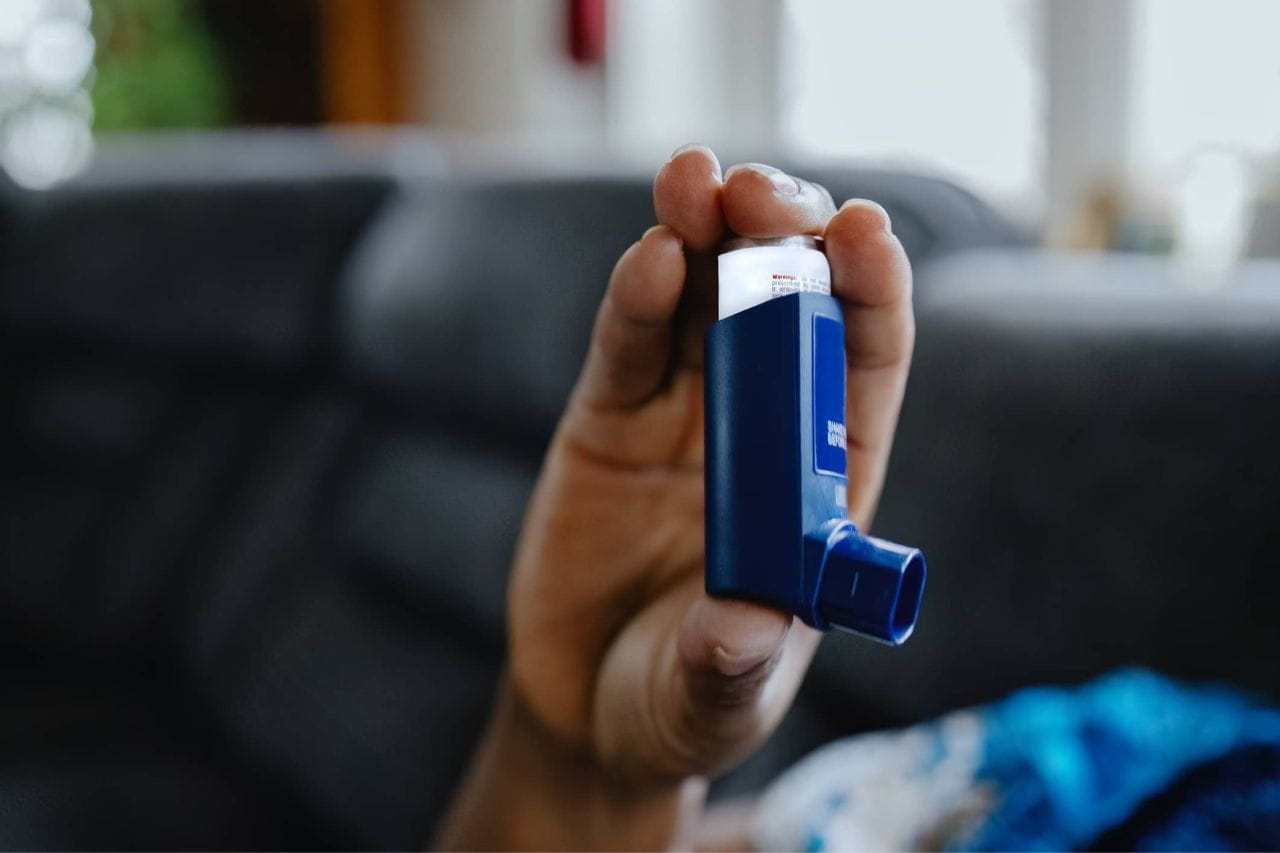What Happens If You Use an Inhaler Without Asthma?

An inhaler is a hand-held device that delivers medication to the lungs of people with asthma and other conditions like chronic obstructive pulmonary disease (COPD). There are different inhalers for different drugs and patient needs, including metered dose inhalers, dry powder inhalers, and soft mist inhalers.
Some people use inhaled corticosteroids regularly to reduce inflammation and the risk of asthma attacks.
They may also have a “rescue inhaler” that delivers fast-acting bronchodilators and quick relief during asthma attacks. Inhalers are an effective method for getting people with asthma the medication they need. But what happens if you use an inhaler without asthma? This article addresses that question.
Side Effects of Inhaler Use for People Without Asthma
It is typically not dangerous to use an asthma inhaler if you don’t have the condition, especially if you don’t do it regularly. However, the medications in inhalers can cause side effects, including:
- Increased heart rate
- Tremors
- Headache
- Feeling anxious or nervous
- Mouth irritation
As for benefits, bronchodilators can increase airflow in people without asthma, but the effect tends to be mild. Inhaled corticosteroids similarly don’t typically have a significant impact on non-asthmatic people.
Consequently, there is little reason for someone without asthma to use an inhaler. Using an inhaler may benefit someone suffering from exercise-induced bronchoconstriction (EIB), but still, it isn’t advised if a doctor hasn’t prescribed it for them.
Borrowing an Inhaler and Delayed Diagnosis
In addition to the possible side effects of ingesting medication not prescribed for you, there is another reason not to use someone else’s inhaler. This practice can cause a delay in being diagnosed with a medical condition.
If you have a lung problem and experience some relief from using a borrowed inhaler, you may not seek the medical attention you need for the problem. As a result, you might not get appropriate treatment while the inhaler is reducing your systems and masking the underlying issue.
Talk with Your Doctor About Sharing Asthma Inhalers
It is generally not advisable to let others take medication prescribed for you — or to take their prescribed medication. Many factors can impact how a drug affects someone. And while adverse reactions to asthma medications aren’t common, letting someone use your inhaler is a risk that provides little reward, if any.
If you’re thinking about sharing your inhaler with someone who doesn’t have asthma, it’s critical to talk with your doctor. They know what medications you’re taking and can explain the potential side effects for others who use your inhaler.
They will also recommend that the person see their doctor regarding their lung problem. It’s also essential that you use your inhaler as prescribed to reduce the risk of asthma attacks and resolve the symptoms promptly if an attack happens. Failing to take asthma medication as prescribed can minimize its effectiveness and make you more susceptible to asthma attacks.
Learn more about asthma from Baptist Health.

.jpg?rev=8782d6a9995d4e8abe68b81f4f7db7be)

